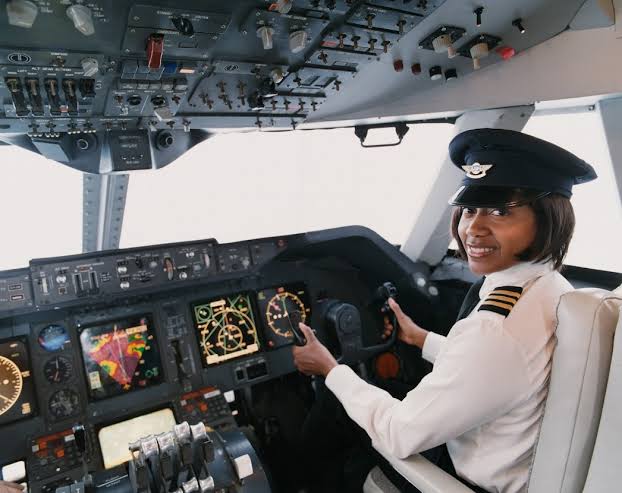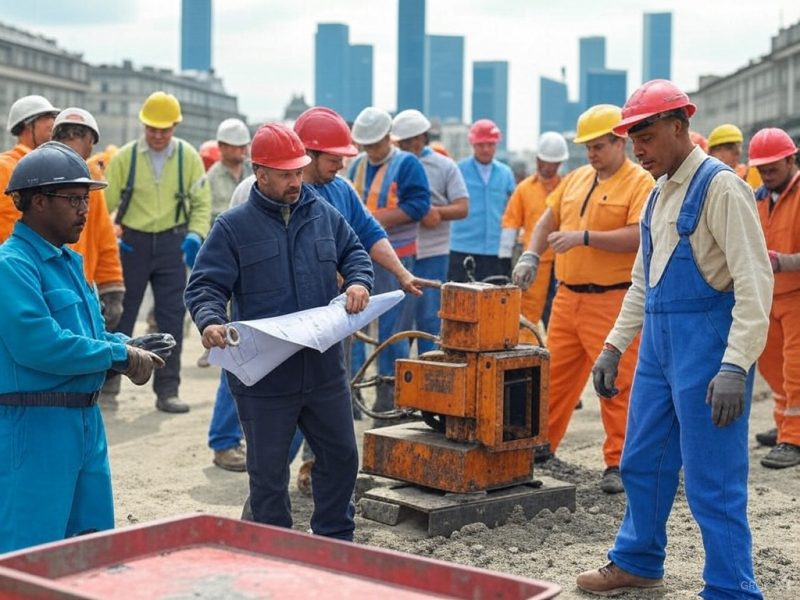Most likely, you might have looked up at a plane flying in the sky and you say to yourself, “I wish that was me up there”? Whether it’s the dream of being a pilot in control of that bird in the sky or working as cabin crew, aviation jobs all just sounds… exciting.
Aviation jobs have this magical pull, and Europe, with all its busy airports and wild mix of cultures, is kinda the ultimate place to chase that dream. Seriously, think about it. Where else can you fly to three different countries in one shift? Europe’s aviation scene is packed — so many airlines, routes, and nonstop demand for people who can make flying safe and smooth.
And no, it’s not all glamorous. There’s jet lag, odd hours, and some cranky passengers. But if you’ve got the travel bug and you’re the kind of person who can stay cool under pressure (and smile while doing it), then this path might just be your vibe.
An Overview of Aviation Jobs in Europe
The aviation industry in Europe is massive. It might interest you to know that over 700 million passengers are flying in and out of Europe each year. That’s massive!
Europe is home to some of the most iconic and hectic airports in the world — Heathrow, Charles de Gaulle, Frankfurt… yeah, the list goes on. Every day, thousands of flights are landing and taking off. That means there’s always a need for new talent, especially pilots and cabin crew.
And it’s not just the big-name airlines like Lufthansa or British Airways. Low-cost airlines like Ryanair, Wizz Air, and EasyJet are growing like crazy. These guys are constantly opening up new routes, and that means one thing: they need people.
The best part? You don’t always need a fancy university degree. If you’ve got the right training or the right attitude (or both), there’s a spot for you somewhere in Europe’s aviation world.
Pilot Jobs in Europe
Alright, let’s talk pilots first. This is one of those careers that sounds awesome—and it is—but it also takes a good bit of training, time, and yep, money.
To become a pilot in Europe, most people either go to a flight school or join a cadet program with an airline. These cadet programs are golden if you can get in. They usually train you from scratch and then slot you right into their airline once you’ve got your license (called the EASA license).
Once you’re in? You’ll probably start out as a first officer (like co-pilot). After you get more flight hours under your belt, you can move up to captain. Flying isn’t just about pushing buttons, though. You’ve got to understand weather systems, manage tricky landings, handle emergencies, and still keep everything chill up front.
Oh, and pilots don’t only work for commercial airlines. In Europe, there are jobs flying private jets, cargo planes (like DHL or FedEx), and even medical helicopters. So if you’re more into niche flying gigs, there’s something for you too.
Cabin Crew Jobs in Europe
Let’s not downplay this job. Cabin crew are the face of the airline. They’re the ones greeting you with a smile, helping you find your seat, offering drinks and meals, and making sure everything runs smoothly. But they’re also trained in serious safety stuff like how to evacuate a plane, deal with medical issues mid-air, and handle passengers who lose their cool at 35,000 feet.
In Europe, airlines are always hiring cabin crew. Ryanair and EasyJet literally have open days in different cities just to recruit fresh crew. Some airlines only need you to have finished high school and speak decent English. Though speaking another European language is a big bonus.
Most airlines train you before you start flying, usually 4 to 6 weeks of intensive classes. Think first aid, emergency drills, customer service, the works. Once you pass that, you’re ready to hit the skies.
And look, it’s not all fancy hotels in cool cities. Sometimes you’re working back-to-back flights and barely get time to eat. But if you like people, and you like not doing the same thing every day, it’s an unbeatable experience.
Aviation Job Salaries in Europe
Now, let’s talk about money. Salaries in aviation depend heavily on the airline, country, experience level, and type of aircraft you’re working with.
How Much Do Pilot Earn?
Obviously, they are one of the best paid, because it’s not an easy task to be flying planes. The time you’re just starting out as a co-pilot, you might earn somewhere between €25,000 to €60,000 a year. Yeah, that’s a wide range. It depends on the airline, the country, and what kind of plane you’re flying. Once you become a captain, things get real. Captains can make anywhere from €70,000 to €150,000+ a year. Not bad, right?
Also, benefits matter. Pilots get things like layover allowances, hotel stays, per diems, health insurance, and sometimes discounted flights for their families too.
Cabin Crew Salaries
Cabin crew salaries can vary a lot too. For new starters, monthly pay is usually around €1,200 to €2,000. Doesn’t sound like much at first, but don’t forget the flight allowances, bonuses, and per diems. Those can really boost your monthly take-home.
As you move up (say, to senior cabin crew or purser), you could be looking at €3,000 or more per month. And again, there are benefits like free travel, discounted tickets, hotel stays during layovers, etc. It’s not millionaire money, but the lifestyle? Pretty sweet if you love travel.
Final Notes
If you’re seriously thinking about getting into aviation in Europe then go for it. It’s a wild ride, but it’s also one of the most exciting career paths out there. You’ll learn fast, grow fast, and probably have stories most people wouldn’t believe.
That said, it’s not for everyone. The hours can be weird, the training can be intense, and you might miss birthdays or holidays sometimes. But if you’re passionate, flexible, and up for a bit of adventure? This world is totally open to you.
My advice? Start by researching flight schools or checking airline websites for open days. Be ready to move to where the jobs are. Brush up on your English (and maybe a second language), polish your CV, and don’t be afraid to apply even if you think you’re not “perfect” for the job. Airlines train you. They want people with the right energy, not just the right experience.
And what’s the worst case scenario? You tried. Best case? You’re 35,000 feet in the air, doing what you love.
We wish you good luck and hope to see you work as a pilot in Europe soon.





